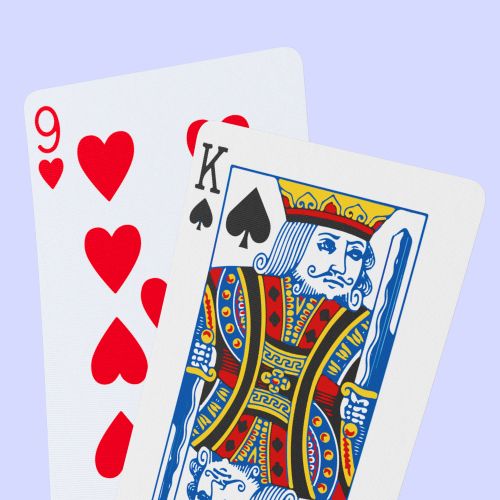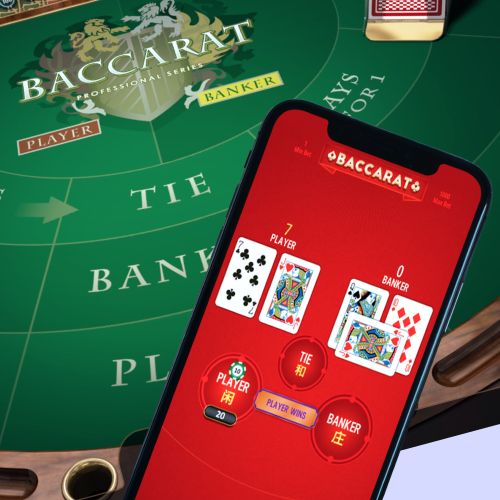1
- Trustworthy Agento N.V. owner
- 11,000+ licensed games
- VIP package 200% bonus
- Withdrawals up to $10,000/day
- Weekly 15% cashback
Baccarat is one of the most popular casino games on the planet. The game’s roots can be traced back to Europe, from where it spread to Asia and the US. Before delving deeper into the game, we must understand the history of baccarat for context.
According to Forbes, baccarat is the most popular casino game in the world. And its popularity is slowly increasing in the US as well! Baccarat online has also taken off substantially in the past decade, with its player base recently exploding.
One of the primary reasons for the game’s immense popularity is its easy-to-learn strategy and elementary mechanics, making it perfect for beginners. As more and more players figure this out, the age-old myth about baccarat’s complicated nature slowly fades away.
And while baccarat might not be as popular as some of the other casino favourites like blackjack, poker, roulette, or slots, it holds its own in the big leagues. Let’s grasp the basics of the game to decode its popularity a little better.

Baccarat or baccara, as it’s popularly called outside the USA and UK, is a famous casino game. The objective is to land a hand as close to 9 as possible. Two versions are prominent over the history of baccarat game, and these are Chemin de Fer or Chemmy and Punto Banco.
In Chemmy, players compete at the table against one another for the best hand while one gets to be the banker. Conversely, in Punto Banco, players go head-to-head with the dealer/banker.
Baccarat allows you to bet on three possible outcomes, unlike other casino games. You either bet on the banker to win, for the player to win, or a tie. You can also place one of the several side bets. The list depends on the dealer.
Mastering baccarat takes time as players must grasp both the rules and strategies. Making decisions takes practice and experience. Further, playing regularly will improve your chances of making the right call significantly.

There are two possible theories about the game’s origin. The first is a Roman dice game where players would receive prizes for throwing a nine or an eight. The second is a Chinese game called Pai Gow, which remains popular throughout Asia today. Pai Gow’s history predates baccarat and could very well have been the inspiration behind baccarat.
Pai Gow literally means make nine when translated to English. And while the basic rules are similar, the games are vastly different. For instance, while the Chinese version uses tiles with symbols on them, baccarat uses cards.
Another theory is that baccarat is an advanced form of a traditional Italian game created by Felix Falguiere. He called the game baccara, meaning zero, based on the zero-value ranks on the cards, as all the tens and face cards are worth zero.

As the stories go, baccarat was introduced in France by soldiers coming back from the Italian war in the 1490s. The French royalty quickly adopted the game and the rest, as they say, is history.
Two versions of the game are popular in France. While the first is Baccarat en Banque, the other is Chemin de Fer, which is the non-banker version. The latter was popular during the Napoleon era, so much so that Louis Philip legalised casinos in 1837.
Chemin de Fer roughly translates as the iron way or railway. If we were to make an educated guess, this contributed to the game’s growing popularity since 1832, as this was also the date when France’s first railroad opened. However, there are no supporting documents for this theory.
Hence, we should assume that Baccarat en Banque is the original version popular in France. The first mention of the game in French history is in a 13-page mathematical analysis called Album des Jeux (“Book of Games” in French).
Baccarat changed immensely over the years, and the rules are constantly refreshed to cope with modern times. The game is still viral online and at brick-and-mortar casinos.

Baccarat reached America in the 1870s, and the game has taken off since. It continues to be played across casinos in Asia and is pretty popular in Europe. It’s an excellent game of chance for those willing to bet on luck.
Baccarat is quite popular at online casinos, and several reputed operators offer live dealer baccarat variations. The vintage card game has aged like fine wine, and its popularity shows no signs of dwindling anytime soon.
Baccarat is ideal for high rollers since the game can massively increase the betting amount. Also, some players are known to have won upwards of $150,000 in a single hand. Hence, the stakes are incredibly high for both players and the casino.
Baccarat has taken the world by storm and pushed the boundaries wherever possible. It’ll be interesting to follow the course of the game as it progresses through time. The most significant addition so far is the switch online.
Game developers like Evolution have several versions of baccarat in their library. And you can enjoy the same at any reputed online casino. Overall, baccarat is popular with the high rollers, and youngsters seem to have joined the trend.
The future seems bright, especially as technology progresses. And if you’re interested in trying your hands at the game, visit a trusted online casino today!
1
2
3